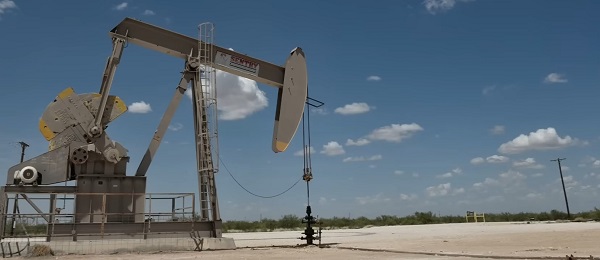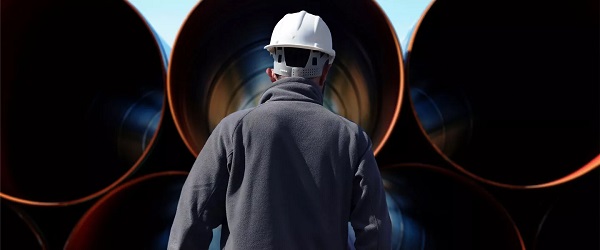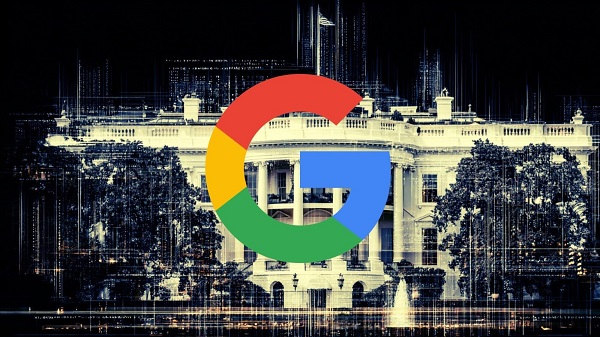Daily Caller
Toronto International Film Festival To Screen October 7 Doc After Backlash For Initial Ridiculous Excuse


From the Daily Caller News Foundation
By Ellie Fromm
The Toronto International Film Festival (TIFF) announced it would navigate legal concerns around a showing of a film documenting the rescue of hostages on Oct. 7, 2023.
TIFF CEO Cameron Bailey stated via social media Wednesday evening that they would work with the filmmaker of “The Road Between Us: The Ultimate Rescue” to proceed with the screening. The move comes after TIFF pulled the film from the line-up due to legal concerns that the film did not receive legal permission from Hamas to use footage of the terrorists.
“I want to be clear: claims that the film was rejected due to censorship are unequivocally false,” Bailey said in the statement. “I remain committed to working with the filmmaker to meet TIFF’s screening requirements to allow the film to be screened at this year’s festival. I have asked our legal team to work with the filmmaker on considering all options available.”
Dear Readers:
As a nonprofit, we are dependent on the generosity of our readers.
Please consider making a small donation of any amount here.
Thank you!
Wendy Sachs, who directed a documentary about the explosion of antisemitism after Hamas’ October 7 attacks, claimed via Instagram that TIFF employee’s hijacked the film’s showing and forced executives to pull it from the schedule.
“The truth is that TIFF staffers refused to work if this film about a grandfather rescuing his family on October 7th was shown at the Toronto Film Festival,” Sachs said on Instagram. “We’ve had similar issues with my film @october8thefilm being protested or rejected because staffers threatened to quit if they showed or worked on the film. It’s outrageous.”
Hamas’ October 7 attacks were some of the deadliest attacks committed against Israel in history, launching approximately 5,000 rockets and sending armed militants into Israeli territory. Over 240 hostages were taken, 1,200 civilians were murdered and many women were sexually assaulted by Hamas that day.
“First and foremost, I would like to express my sincere apologies for any pain this situation may have caused,” Bailey said in the statement. “It was never my intention to offend or alienate anyone. At TIFF, we believe in the transformative power of film to foster understanding and dialogue, especially during challenging times.”
Bailey claimed he originally invited the film to show at TIFF because he believed it was important for a large scale of different stories and perspectives to be shown at the festival, according to his statement.
Israeli Prime Minister Benjamin Netanyahu recently said his forces aim to “liberate” the Gaza Strip from Hamas and then give control of the strip to Arab forces, with Israeli forces having only temporary control of the strip.
Business
Over $2B California Solar Plant Built To Last, Now Closing Over Inefficiency


From the Daily Caller News Foundation
By Hailey Gomez
The partially taxpayer-funded Ivanpah Solar Power Facility in California’s Mojave Desert is set to shut down in 2026 due to inefficiency in generating solar energy, according to the New York Post.
The $2.2 billion plant, which features three 459-foot towers, was greenlit in 2010 and completed in 2014. According to the New York Post the closure stems from the site being “outpaced by solar photovoltaic technology” and proving both inefficient and costly. The shutter of the site comes more than a decade ahead of its original 2039 end date, according to the Associated Press.
Speculation about Ivanpah’s early closure began in January, when Pacific Gas & Electric announced an agreement with the plant’s owners to terminate its contracts.
“Ivanpah Solar was built when developers were investing in many different types of clean energy. The goal was to find efficient and affordable technologies to reduce the need for greenhouse gas-emitting fossil fuels,” PG&E wrote in a January press statement.
“The technology had worked on a smaller scale in Europe. Spain had several concentrating solar projects of up to 20 megawatts. In the 2000s and 2010s, various private companies invested in large-scale concentrating solar power in the United States. But over time, solar photovoltaic technology raced ahead of its rival in affordability,” the press statement continued.
Funds for the massive plant partially came from former President Barack Obama’s Department of Energy, which in 2011 issued $1.6 billion in three federal loan guarantees under former Secretary of Energy Ernest Moniz. At the 2014 opening, Moniz touted federal support for the project, calling it “a shining example” of America’s leadership in solar energy.
“The Ivanpah project is a shining example of how America is becoming a world leader in solar energy,” said Secretary Moniz, as reported by PBS. “As the President made clear in the State of the Union, we must continue to move toward a cleaner energy economy, and this project shows that building a clean energy economy creates jobs, curbs greenhouse gas emissions, and fosters American innovation.”
In recent years, California has faced mounting problems with solar energy and refineries. In August 2024, major rooftop solar company SunPower filed for Chapter 11 bankruptcy in Delaware after struggling with issues like California’s rooftop solar subsidy programs and high interest rates.
Daily Caller
Shale Execs Complain Of ‘Broken’ Prospects In New Survey


From the Daily Caller News Foundation
In his remarks at this week’s U.N. Climate Week conference, President Donald Trump reminded the U.N. general assembly that “we have an expression, ‘drill, baby, drill.’ You know, that’s what we’re doing.”
But according to almost 80% of the dozens of shale oil executives who responded to the third quarter survey of oil and gas companies by the Dallas branch of the Federal Reserve, that’s all about to come to an end thanks in large part to the President’s focus on cutting oil prices as a means of controlling inflation.
“The uncertainty from the administration’s policies has put a damper on all investment in the oilpatch,” one executive said. Another warns that “drilling is going to disappear.”
Dear Readers:
As a nonprofit, we are dependent on the generosity of our readers.
Please consider making a small donation of any amount here.
Thank you!
One upstream company executive was especially angry at the administration, writing that the business “has been gutted by political hostility and economic ignorance. The previous administration vilified the industry, buried it in regulation and cheered the flight of capital under the environmental, social and governance banner…Now the current administration is finishing the job.”
The confidential format of the Dallas Fed’s quarterly surveys encourages the executives to speak bluntly in their responses, and the airing of such grievances is often the result. Most would no doubt temper their language in a meeting with the President or his senior officials, and other respondents did just that, noting that their industry and companies have been buffeted this year by an array of factors, both domestically and internationally.
“There are a variety of issues affecting our business,” one respondent points out. “First, excess in the global oil market is restraining oil prices near term. Second, there is continued uncertainty from OPEC+ unwinding production cuts. Third, trade and tariff changes and the resulting geopolitical tensions.”
He or she isn’t wrong. While shale drillers and producers have no doubt been frustrated by the constantly shifting tariff situation as the White House works out trade deals with dozens of countries, there are other major market factors well beyond any U.S. president’s control. The uncertainty around tariffs has without question increased industry costs, especially as they relate to tubular goods and other steel and aluminum products that are integral to their operations. But at the same time, there can be little doubt that the monthly machinations of the OPEC+ cartel have created a much larger impact on driving down the price of crude oil and thus, driving down company profits.
As for the geopolitical tensions the responder mentions above, Joe Biden’s four years in office were chock-full of such issues, many of which were left behind for Mr. Trump to deal with and resolve. The simple truth is that there has never been a time during its 166-year history that the U.S. oil and gas industry didn’t have to deal with such complications.
The oil business is an infamously cyclical one, as anyone who has been in it for more than a year understands. I spent more than 40 years in the industry and would need to use fingers on more than one hand to total up the number of boom-and-bust cycles that took place during that span.
The fact is that drilling levels in the United States have been on a steady decline since late 2018 in response to prevailing market factors far more than to the policies of the Biden or Trump administrations. As I pointed out shortly after last November’s election, the maturity of every major shale play meant that there would be no revival of “drill, baby, drill” in a second Trump presidency regardless of the administration’s policy direction. It just was never going to be in the cards.
The grievances and frustrations aired by these executives are entirely understandable: It’s a tough business that is impacted for better or worse by public policies. But pointing the finger of blame at Trump is a simplistic reaction to a highly complex set of circumstances.
David Blackmon is an energy writer and consultant based in Texas. He spent 40 years in the oil and gas business, where he specialized in public policy and communications.
-

 Business11 hours ago
Business11 hours agoOver $2B California Solar Plant Built To Last, Now Closing Over Inefficiency
-

 Autism2 days ago
Autism2 days agoAutism – what we know
-

 Alberta2 days ago
Alberta2 days agoFederal policies continue to block oil pipelines
-

 espionage1 day ago
espionage1 day agoCanada Under Siege: Sparking a National Dialogue on Security and Corruption
-

 Business10 hours ago
Business10 hours agoWEF has a plan to overhaul the global financial system by monetizing nature
-

 Business12 hours ago
Business12 hours agoThe Leaked Conversation at the heart of the federal Gun Buyback Boondoggle
-

 Business1 day ago
Business1 day agoGoogle Admits Biden White House Pressured Content Removal, Promises to Restore Banned YouTube Accounts
-

 Opinion11 hours ago
Opinion11 hours agoThe City of Red Deer’s financial mess – KPMG report outlines failure of council to control spending




